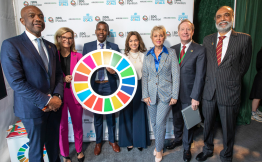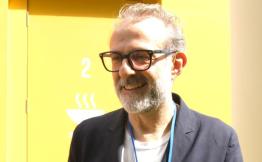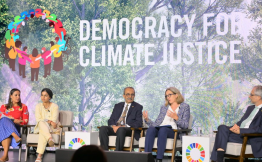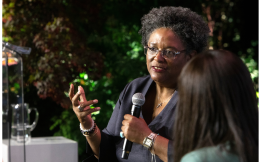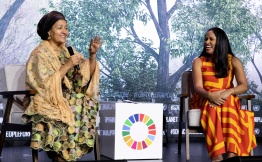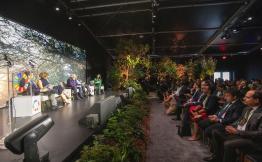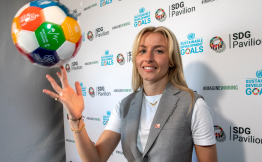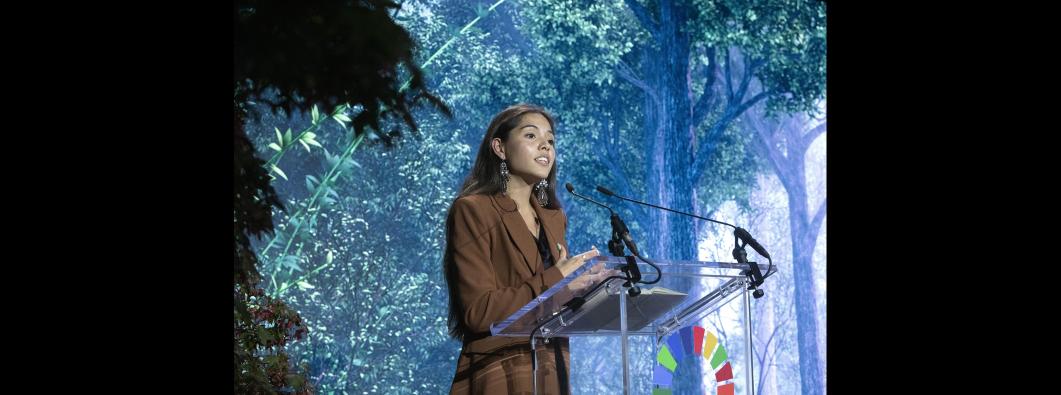
Global Climate Crisis Demands Immediate Action for Justice
The Climate Justice session at the SDG Pavilion included in-depth discussions about early warning systems as a key measure to save lives and protect livelihoods from loss and damage, and emphasized the importance of delivering on the promise of climate finance to meet the needs of developing countries and enhance their resilience.
The first panel of the session focused on early warning systems, particularly their role in achieving climate justice. The panel showcased progress towards this ambitious goal, highlighted the challenges faced by vulnerable populations, and explored equitable solutions for universal access to early warnings.
Dwikorita Karnawati, Director of the Indonesian Agency for Meteorology, Climatology and Geophysics, advocated for greater social justice for the poor, enabling them to become as resilient as those with more resources. Meanwhile, Mami Mizutori, the head of UN Disaster Risk Reduction (UNDRR), emphasized that an early warning system’s effectiveness depends on promprt follow-up actions. She noted, "In some vulnerable communities, where the spoken language may not align with the national language , the warning needs must be curated to ensure they reach all residents".
Early warning systems are poised to be increasingly important in the coming years, as Petteri Talaas, the head of the World Meteorological Organisation, explained. He said that negative trends will persist into the 2060s, regardless of our success in mitigating the effects of this instability.”
AI technology has an important role to play in early warning systems. Kate Brandt, Chief Sustainability Officer at Google, explained that, through Google Search and Google Maps, information from reliable sources can show if there are nearby floods or wildfires. “AI can be used for early detection of wildfires so that emergency authorities can go and squelch them," she said.
The second panel, moderated by Cassie Flynn, Global Head of Climate Change at the UN Development Programme (UNDP) focused on the need to scale up climate finance - a necessary investment for a liveable planet. Climate change-induced disasters raise challenges and increase development, and that climate finance is a vital tool enabling developing countries, especially the poorest and most vulnerable, to reduce greenhouse gas emissions and build resilience.
H.E. Matthew Samuda, Jamaica’s Climate Change Minister, underlined the necessity for more climate financing in his country, noting that $3 billion is needed to make Jamaica water-secure by 2030. However, he also predicted that, by then, half of the country’s energy will be produced from renewable sources.
For nations that are heavily dependent on tourism, the climate crisis is causing huge economic instability. Jevanic Henry, UN Secretary-General’s Youth Advisor on Climate Change, called for political will to increase climate financing. "We have the evidence, we have enough scientific research. Now we need the political will."
Building on the importance of ensuring equitable climate action that upholds human rights for all, the final panel examined the adverse effects of climate change, including on human rights, and showcased successful case studies of integrating human rights principles into climate policies.
Kevin Chand, senior legal advisor to the Permanent Mission of the Republic of Vanuatu to the United Nations said that island nations are seeking climate protection from the International Tribunal for the Law of the Sea, which will consider whether carbon emissions should be considered marine pollution. Their advisory opinion would be key as countries seek to get answers on how to determine the obligations of states parties.
Indigenous rights activist and UN SDG Advocate Hindou Ibrahim noted that, whilst indigenous people make up five per cent of the world's population, they protect 80 per cent of the world's biodiversity. “Climate justice is about all species, from insects to animals, from our rivers to our oceans to our forests to our savannas. They all deserve respect.”
Vanessa Nakate, Climate justice activist and UNICEF Goodwill Ambassador, said that there must be an end to new investments in fossil fuels. “We know that they’re greatly responsible for this crisis, which has caused destruction in many communities, especially in the Global South. Leaders must listen to the science, and listen to communities. We’ve seen disaster upon disaster. People can’t deny that we’re in an emergency that needs to be addressed”.
Climate activist Xiye Bastida closed out the session, with a talk on the importance of activism and how to find hope amidst the climate crisis. "Everything that we are comes from the earth. When you hurt the earth, you hurt yourself".
Watch the session [HERE]
See more photos [HERE]




